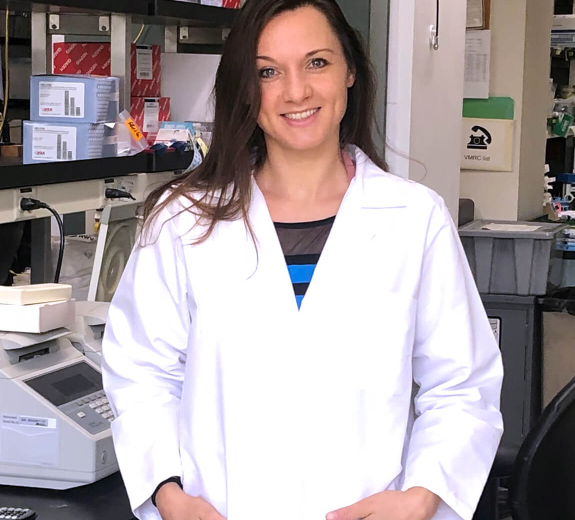
A Subset of Expanded Regulatory T Cells Is Linked With C-Peptide Preservation in Children With New Onset Type 1 Diabetes
In an article published today in the journal Science Translational Medicine, Benaroya Research Institute (BRI) scientists share the mechanistic results from the T-Rex study, a phase II clinical trial in which 8- to 17-year-olds with new-onset type 1 diabetes (T1D) received autologous polyclonal expanded regulatory T cells (expTregs). While the expTregs did not prevent T1D disease progression, the mechanistic analysis lead by Drs. Christine Bender and Alice Long, in collaboration with Dr. Stephen Gitelman at the University of California, San Francisco and Dr. Kurt Griffen at Sanford Health, found that expTregs that expanded more slowly had a unique gene expression signature and were linked with better C-peptide preservation.
Tregs play an important role in maintaining balance between the body and the immune system by preventing the immune system from attacking the body’s own cells and leading to autoimmune disease. In this clinical trial, polyclonal Tregs were isolated from the blood of each participant and the number of Tregs was expanded by growing the cells in culture. The resulting polyclonal expTregs were then infused back into the participant at one of two cell doses. Samples were collected during the Treg expansion and from participants after infusion allowing comparison of Tregs over time across many treated individuals.
BRI researchers Drs. Bender and Long noticed that the rates at which the Tregs expanded varied across participants. They also found that there is a specific gene signature associated with Tregs that expand at lower rates and that this gene signature significantly correlated with greater preservation of C-peptide one year after infusion, regardless of dose. This suggests that the slow expansion gene signature could be used as a biomarker of successful expTreg treatment and to identify patients for whom autologous polyclonal expTregs will be an effective treatment to halt T1D disease progression.
More broadly, this mechanistic analysis suggests that endogenous Tregs have different potentials, which could have significant implications for the use of Tregs as a treatment approach not only in T1D and across autoimmune and immune-mediated diseases, but also in tolerance of transplants and CAR-Treg therapies.


